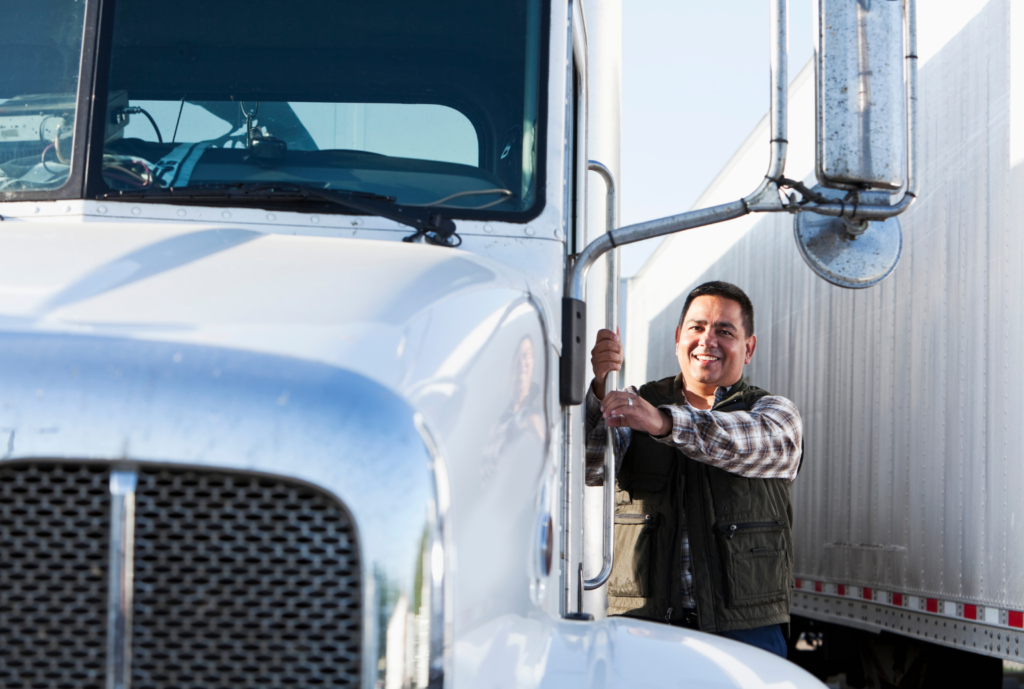Commercial Driver’s License or CDL is required to operate a commercial motor vehicle in the United States.
CDLs are issued by the state in which the driver resides, much like a regular (Class D), non-commercial driver’s license. Although states frequently have their own minimum requirements that CDL applicants must achieve and these standards differ from state to state, the federal government establishes CDL regulations that all states must adhere to.
A CDL is necessary to operate a few distinct kinds of commercial motor vehicles. Any vehicle with an operational weight greater than 26,000 pounds, one intended to carry 16 or more passengers (including the driver), and one meant to transport hazardous materials are examples of such vehicles. According to their size, weight, and intended use, commercial vehicles are categorized into many groups. Both require completing a unique series of knowledge and skills tests to obtain a CDL, either Class A or B.
That being said, you need a CDL if you want to earn as a truck driver in Hoosier State, but how to get a CDL permit in Indiana?
How To Get CDL In Indiana?
To operate a certain type of vehicle, you need to be qualified for a certain class, such as Class A, Class B, and Class C.
You need to apply for special approvals to haul particular materials. These recommendations include:
Endorsement H – Hazardous materials
The driver is permitted to transport any quantity of a substance identified as a select agent or toxin in 42 CFR part 73 or any substance that has been designated as hazardous under 49 U.S.C. 5103 and is required to be placarded under subpart F of 49 CFR part 172. The applicant must also pass a background check by the Transportation Safety Authority.

Endorsement N – Tank Vehicle
Any liquid or gaseous materials may be transported by the driver inside a tank or tanks with a combined rated capacity of 1,000 gallons or more that is either permanently or temporarily attached to the vehicle or the chassis and have an individual rated capacity of more than 119 gallons. An empty storage tank with a rated capacity of 1,000 gallons or more that is being transported by a commercial motor vehicle but isn’t intended for transportation isn’t regarded as a tank vehicle. It’s instead temporarily affixed to a flatbed trailer.
Endorsement P – Passenger Transport
A commercial motor vehicle with a capacity of 16 or more passengers, not counting the driver, may be driven by the driver.
Endorsement S – School Bus
The driver is qualified to operate a commercial motor vehicle that is utilized to carry pre-primary, primary, or secondary school pupils to and from school-sponsored events or from home to school.
Endorsement T – Doubles Or Triple Trailers
A commercial motor vehicle with two or three distinct trailers attached may be driven by the driver.
Endorsement X
Under the H and N endorsements, the driver is permitted to transport hazardous products and tanker vehicles in the manner described above.
Basic Requirements For Acquiring CDL In Indiana
- Must be at least 21 years old
- Possess a valid driver’s license issued by the state of Indiana for at least one (1) year.
- Proof of permanent residency or citizenship
- Documents such as a birth certificate, passport, certificate of naturalization, and permanent resident card are acceptable
- Possess two (2) proofs of Indiana residency
For Indiana CDL drivers, there are extra requirements to ensure that you will be a safe drivers. You must submit a request to the Indiana State Police to verify whether or not you have been involved in any crashes during your application review period.
Physical Requirements To Get CDL In Indiana
You must fulfill these medical requirements to demonstrate that you are physically fit to operate CMVs in Indiana. The Medical Examination Report and Medical Examiner’s Certificate must be completed by a physician who has been authorized by the Federal Motor Carrier Safety Administration to verify that you are capable of meeting the requirements.
You will also need to self-certify the sort of driving that you plan to conduct with your CDL. This procedure can be finished using the official web portal.
Fees Covered When Getting CDL In Indiana
Commercial driver’s license: $35
Changed or duplicate CDL: $9
Commercial learner’s permit: $17
Upgraded or downgraded CDL or CLP: $19
Taking The Indiana Cdl Test:
You need to get a Commercial Learner’s Permit before getting a CDL. Specifically, you must:
- Give proof of your residency or citizenship in the United States
- Required medical documentation
- Pass a vision test (each eye must have a vision of at least 20/40)
- Any state where you have held a driver’s license in the last ten years should be disclosed to the BMV
- Deposit the $17-CLP charge
- You must succeed on the written knowledge test for the CDL class and any endorsements you desire
You should strongly consider enrolling in a CDL education course to aid you in the process even though it is not necessary.
All CLP holders must follow FMCSA regulations and only operate commercial vehicles on public highways while being closely supervised by a commercial driver who holds a full license. You may hold up to three permits simultaneously within two years, and your CLP is valid for 180 days. Before you may take the skills test that would allow you to obtain a full CDL, you must practice using your commercial learner’s permit for at least 14 days after receiving it.
You can take your CDL test in Indianapolis, Muncie, Whiteland, or any other location that has been approved by the BMV.
Last but not least, you must pass your CDL test, which entails:
- Road trip test
- Pre-trip Inspection test
- Basic skills test
If you don’t take the exam in the vehicle you plan to drive, your CDL may be subject to restrictions.
Within a year after applying for an Indiana CDL, military people who are currently serving or who have just been honorably discharged and have truck-driving experience may decide to forgo the skills test. Fill out this application and attach a copy of your military CDL, any documentation proving your active duty status, and a letter from your commanding officer attesting to your recent (2-year) military experience operating commercial vehicles.



